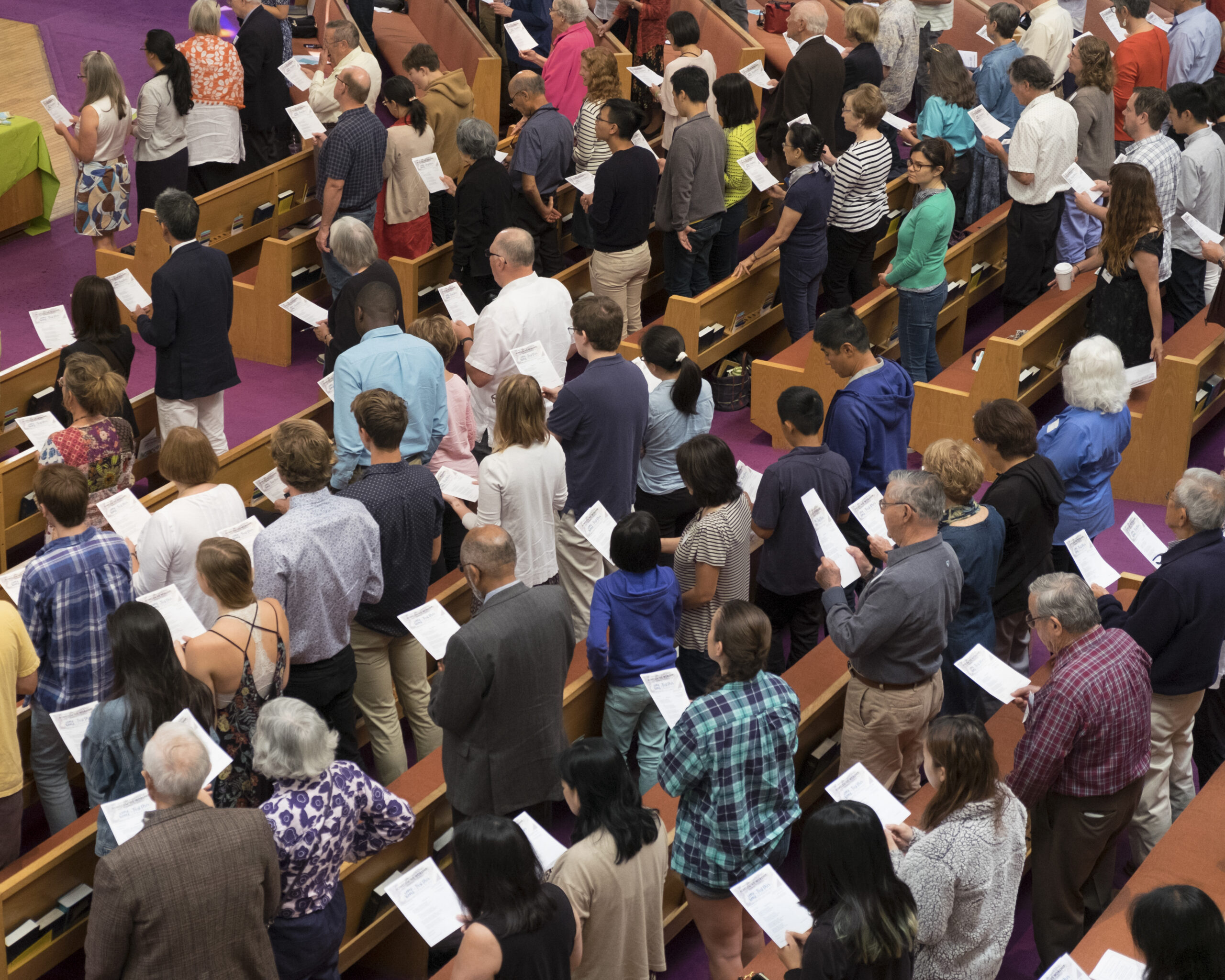I have been greatly bothered by Hebrews 10:25 for a while. “Thou shalt not forsake the assembly of the brethren, as is the manner of some,” the author exhorts, as with a wrinkled and furrowed brow.
Yikes. I can feel the author’s hot breath on my neck.
My key question/problem is with the word assembly. I asked a pastor friend of mine about this, and he said: “We must be especially careful that we properly distinguish between the idea of gathering and assembling. If you take a bunch of parts—say, Ikea furniture pieces—and gather them in a big box, they will be of little use even though they are absolutely gathered. They must be assembled to be of use.”
If churches are supposed to be places of assembly and not simply gathering, we are in a heap of disjointed trouble, especially if we are to be a working body—ergo, an assembled body, not merely gathered parts.
When was the last time you, as a unique member with unique abilities, felt fitted together to be of use in your church community, besides being a member of the music team, a financial contributor, or a greeter at the door? Is that all “community” entails?
According to the Oxford English Dictionary, the word assembly has important connotations. One is “strengthened by being together.” It also includes “to congregate.” However, congregate isn’t just gathering. It’s actually “mingling.” And a great definition for that is “to mix (things together or one thing with another) so that they become physically united or form a new combination; to combine in a mixture, to blend”.
In our Christian community, we should be so together that to the outsider we are a mingled collective of interworking bodily members. This implies that we should be soluble to each other so we can combine together.
And so back to my trouble with the typical church and the assumption that churchgoing is conterminous with assembly. Especially considering the instruction that precedes verse 25. Let’s look at the two verses in tandem from a few translations.
The Voice
Let us consider how to inspire each other to greater love and to righteous deeds, not forgetting to gather as a community, as some have forgotten, but encouraging each other …
The Message
Let’s see how inventive we can be in encouraging love and helping out, not avoiding worshiping together as some do but spurring each other on …
The Mirror
Let us also think of creative ways by which we can influence one another to find inspired expression in doing things that benefit others. Good actions give voice and volume to the love of God. In the light of our free access to the Father, let us extend that embrace to one another. Our gatherings are no longer a repetition of tradition but an essential fellowship where we remind one another of our true identity.
I love the ideas given in these three versions: assembly being connected with being inventive in encouraging each other, inspiring each other to righteous deeds, and being creative in influencing each other in doing things that benefit others.
That’s community, and it allows for so much breadth of opportunity.
Most biblical experts agree that the word ecclesia (which is translated as “church”) is not a building or a place to go on a particular day; it’s something we are. This puts a different spin on assembly and what it means.It gives me painful considerations about my own responsibility. How can I be more soluble? How can I be more inventive in helping others, and more creative in inspiring my Christian siblings? How can I better prepare myself to mingle easier with my fellow congregants?
I am working on it and asking others about it. And the more I think about it, the more I am freed to think outside the typical paradigm of just helping in a church, about being a help to the body.
Because I’m an introvert, I often put the onus of assembling on the church leadership because they are the ones in charge, and yet that isn’t entirely fair. Andy Crouch, author of Culture Making, reminds us that, whether or not we feel it, we all have some degree of power (use the term resources or influence if that’s more comfortable) in our own spheres of relationship and community. He urges us to cultivate sturdy and lasting relationships with people of shared visions, because it is from these relationships, or micro-communities, that viable possibilities are birthed and sustained: creative projects that bring beauty, inspiration, healing, and redemption to the people around us.
While assembling myself with an entire group of churchgoers seems daunting, assembling with one or two people of my church community is more realizable. Crouch suggests groups of three are ideal. In creatively investigating how we might share our resources to mutually benefit one another, perhaps we will get closer to Paul’s vision of assembly.
Matthew Steem is the editor of Radix Magazine

